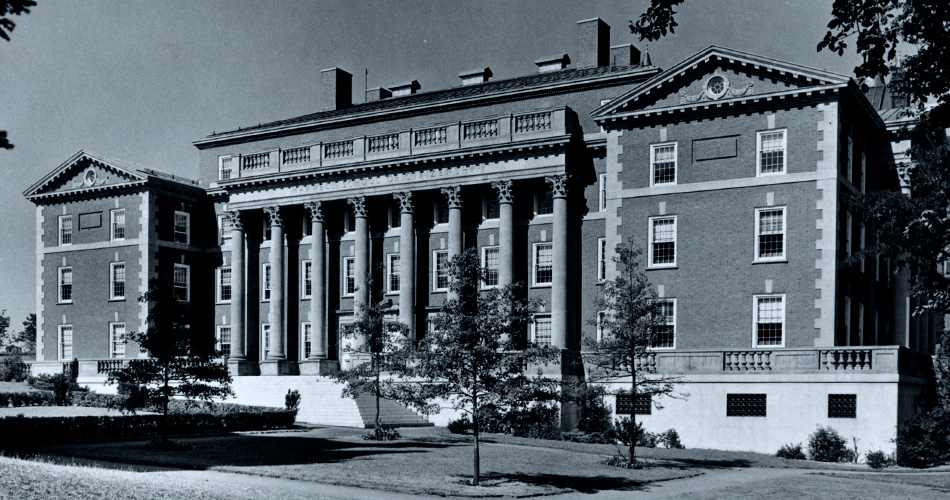Plot-Life in Flower City: Transnational Ritual Ecologies in the Wake of Plantations
Maxwell Hall, 204
Add to: Outlook, ICal, Google Calendar
Speeding along the Queen Elizabeth Way, it is easy to overlook the gray, industrial landscape along the shore of Lake Ontario. But near the airport, off the expressway—no place really—is a small oasis, though difficult to tell from outside. In Unit #28, the goddess, Mariamman, sits. How to begin the story of Her presence? Where to begin? Maybe South India, “home” of the goddess whose powers of fertility are invoked to bring rains to barren fields and relief from bodily afflictions. Or perhaps British Guiana, the “new homeland” of indentured laborers who carried her across dark waters in the nineteenth century to the edge of sugarcane plantations. Following that nation’s independence in 1966, and the economic and political upheaval that ensued, Indo-Guyanese emigrants took flight, bringing revitalized traditions from the Caribbean to North American cities. Traversing these generations and geographies is relevant to understanding how the goddess in her many forms has come to be revered in a barren industrial park on the outskirts of Toronto. While Brampton is known as “Flower City” due to the floriculture industry that once thrived there, few traces of the flower works remain today beyond city branding. Warehouses have replaced greenhouses and meters of roads suffocate most signs of life. Yet, a vast transnational network of commodities and exchange have vitalized Mother worship here, even nourishing its growth. This weedy tradition is quite adept at colonizing cracks in the pavement.
In this talk, I explore one such place, a busy intersection where the plot-and-plantation reverberates (Wynter 1971). Weekly gatherings of human and more-than-human entities—plants among them—participate in collaborative, co-creative acts that make life more meaningful, bearable, and interesting. This is plot-life, in McKittrick’s (2013) sense, “a creative geography of alternative history practices that has no interest in rehearsing lifelessness.” But to make claims and occupy involves enacting boundaries on different terms. Sweat and blood, soot and smoke, pounding rhythms and dancing feet, firmly emplace rather than merely transcend. Here, the sovereign meets the sensuous, replenishing what modernity drains.
Shannon A. Novak is a Professor of Anthropology at Syracuse University. Her research seeks to understand human bodies as living beings, material substances, and cultural symbols. To do so involves following tissues and traces through shifting landscapes, embodied practices, and historical narratives. Her fieldwork, in turn, takes place in multiples settings, including ethnographic sites, as well as archives, laboratories, and archaeological excavations. Broadly trained in bioarchaeology and social anthropology, Novak’s research is especially concerned with multiple ontologies of the body and “more-than-human” assemblages. In one form or another, her studies have engaged with ruptures that occurred across the long nineteenth-century and whose resonances are experienced in the present: from ethno-religious conflict in the Intermountain West, to rebellious acts of abolitionists in New York City. Her recent research traces the movements of indentured laborers from India to the Caribbean—in particular, British Guiana. Since 2016, she has been conducting ethnographic research with Indo-Guyanese communities in both New York and Toronto.
Category
Social Science and Public Policy
Type
Talks
Region
Campus
Open to
Alumni
Faculty
Parents and Families
Staff
Students, Graduate and Professional
Students, Prospective
Students, Undergraduate
Cost
Free
Organizers
MAX-Moynihan Institute of Global Affairs, MAX-South Asia Center
Accessibility
Contact Emera Bridger Wilson to request accommodations

We’re Turning 100!
To mark our centennial in the fall of 2024, the Maxwell School will hold special events and engagement opportunities to celebrate the many ways—across disciplines and borders—our community ever strives to, as the Oath says, “transmit this city not only not less, but greater, better and more beautiful than it was transmitted to us.”
Throughout the year leading up to the centennial, engagement opportunities will be held for our diverse, highly accomplished community that now boasts more than 38,500 alumni across the globe.